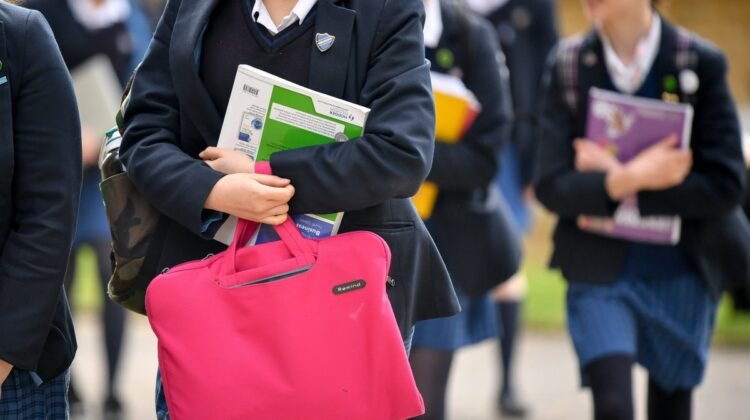
Families face £1,076 bill per child for summer holiday childcare
Families paying for childcare over the six-week summer holiday now face a bill of £1,076 per child on average – a rise of 4% on last year, a report has found.
Councils have reported a shortage of holiday childcare places – especially for children with special educational needs and disabilities (Send), according to research by the Coram Family and Childcare charity.
It suggests families in the UK pay on average £1,076 for six weeks at a holiday childcare club for a school-age child, which is £677 more than they would pay for six weeks in an after-school club during term time.
The research, based on surveys of local authorities in England, Scotland and Wales between April and June, suggests the average cost of a holiday childcare club has risen by 4% in a year to £179 per week.
Wales has the highest weekly price at £210, followed by England at £178 and Scotland at £168.
There is significant variation in holiday club prices across England, ranging from £196 per week in the South East to £162 per week in the North West.
The report also found that the average cost of a childminder during the holidays is £234 per week in the UK.
Inner London has the highest childminder price at £306 per week, compared to the South West where the childminder cost is £191 per week.
In England, only 9% of local authorities said they had enough holiday childcare for at least three quarters of children with Send in their area.
This figure falls to 0% for three regions in England – the East Midlands, the East of England and Inner London, the report said.
Get a free fractional share worth up to £100.
Capital at risk.
Terms and conditions apply.
ADVERTISEMENT
Get a free fractional share worth up to £100.
Capital at risk.
Terms and conditions apply.
ADVERTISEMENT
The charity is calling on the Government to provide more funding, training and support to holiday childcare providers to meet the needs of Send children.
The holiday activities and food (HAF) programme – which funds local authorities to provide holiday childcare, activities and food for children eligible for free school meals – should also be maintained after March 2026 to ensure disadvantaged children have childcare during school holidays, it added.
The expansion of funded childcare – which was introduced by the Conservative government – began being rolled out in England in April last year for working parents of two-year-olds.
Working parents of children older than nine months are now able to access 15 hours of funded childcare a week during term time, before the full rollout of 30 hours a week to all eligible families in September.
The report said: “It is encouraging to see increasing recognition that childcare is essential for facilitating parental workplace participation, with the continued expansion of funded childcare in early years, support to develop wraparound childcare before and after school, and the introduction of free breakfast clubs.
“There is no longer an assumption that parents and employers are able to fit their work around the school day, or an expectation that they will do so.
“However, outside of school term time, the situation is very different.
“Holiday childcare remains the unspoken outlier of childcare policy and the gap that parents must bridge every school holiday.”
Lydia Hodges, head of Coram Family and Childcare, said: “The need for childcare doesn’t finish at the end of term.
“Holiday childcare not only helps parents to work but gives children the chance to have fun, make friends and stay active during the school breaks.
“Yet all too often it is missing from childcare conversations.
“Whilst the increase in government-funded early education has reduced childcare costs for working parents of under-fives in England, prices for holiday childcare are going up for school-age children.
“This risks encouraging parents to work while their children are young, only to find it is not sustainable once their child starts school.
“Availability of holiday childcare is an ongoing issue and without a clear picture of how much holiday childcare there is in each area, we cannot be sure that children – particularly those with special educational needs and disabilities – are not missing out.”
Arooj Shah, chairwoman of the Local Government Association’s (LGA) children and young people board, said: “While councils recognise the importance of ensuring there is sufficient provision available for children with Send, it can be difficult to ensure the right provision is available, particularly given the challenging situation that many providers face at the moment.
“Councils work closely with providers to improve access to holiday childcare provision for children with Send but without investment and recruitment of quality staff this will be difficult to deliver.”
A Government spokesperson said: “We recognise the school holidays can be a pressurised time for parents, which is why this government is putting pounds back in parents’ pockets both during the holidays and in term time.
“We are expanding free school meals to all children whose households are on universal credit, introducing free breakfast clubs in primary schools, and rolling out 30 government funded hours of early education from September – saving families money and helping them balance work with family life.
“We are also continuing to fund free holiday clubs through the Holiday Activities and Food programme which provides six weeks of activities and meals for any child from a low-income family who needs it.”







